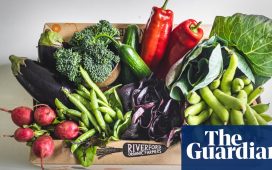Coles has announced about 2,500 products will disappear from the supermarket giant’s shelves soon.
The decision, first reported by the Australian Financial Review, builds on an investor presentation last year when Coles’s operations and sustainability officer, Anna Croft, revealed the supermarket would be “simplifying” its range.
The loss of 2,500 items means about 10% will be removed from Coles’s entire product range.
Consumer experts have mixed views on the decision, with one professor warning that it would give the major retailer even more power and customers less choice.
Why is Coles doing this?
Croft told the investors’ meeting in November that Coles would remove “duplication” and be “reinvesting in the categories in the space that makes the most amount of difference to customers”.
Hailey Kim, an investment analyst, said she was not surprised by Coles’s decision as a 10% range reduction was “very much part of their normal course of business”.
“It really just comes down to assessing how much of your range is driving your profitability,” Kim, from Wilson Asset Management, said.
She noted the media coverage of the announcement came at an interesting time, with the Australian Competition and Consumer Commission due to hand down its final report from its inquiry into the supermarket sector later this month.
What does this mean? “That they’re confident they haven’t done anything wrong and they have been competitive and everything has been part of their ordinary course of business,” Kim predicted.
Coles is also due to release its earnings for the first quarter to shareholders later this month.
Kim said she would expect Coles to see an uplift in profitability in the near term because it would be likely to cut ranges of products that did not make it as much money as others.
“We will have to see how much that gets through [to customers],” she said.
Prof Gary Mortimer, a retail expert, said supermarkets recruited more suppliers during the Covid pandemic to counteract the overwhelming demand for products.
“Three or four years outside the pandemic, what they’re looking at now is an overabundance of essentially the same products,” Mortimer, from the Queensland University of Technology, said.
Croft alluded to this in her November presentation, telling investors: “Even if I went hard year after year for two years on the trot and did double-digit rationalisation, I would still have more range than I had in 2019.”
What will this mean for customers?
Mortimer said the reduction in the range of products ultimately “removes complexity” for consumers and the supermarket.
He said Coles was likely to get rid of so-called “nice-to-have” brands rather than staples such as Coca-Cola or Pedigree dog food.
He said the decision should reduce costs for Coles and therefore “hopefully” result in cheaper retail prices.
“It’s hard to tell what the outcome would be,” he said. “If the cost savings are realised as a direct result of reducing the range for 10%, what you would expect to see is a reduction in retail prices for shoppers.”
Assoc Prof Andy Schmulow said a decline in choice was “never good for consumers” and it would give Coles the opportunity to raise prices.
Schumlow, from the University of Wollongong’s law school, said he had “real misgivings” as to why Coles would narrow its product range.
He said culling product lines sent a lot more business to Coles’s selected manufacturers, which might be good for them in the short term but ultimately gave the supermarket more power over them when negotiating supply deals.
What products are disappearing?
We don’t know – yet.
At the investor day in November, Croft gave two examples where products may be slashed – table salts and haircare products.
“We have 13 basic table salts. We don’t need those. We might go to five and we might add three different types of salt in to give customers more choice,” she said.
“Take one of our leading haircare brands – we have six different pack sizes ranging from 80ml to 1.1 litre.”
Coles has not announced yet whether it will stop stocking other brands in favour of its own-brand products, a move that would also increase its profitability. The supermarket did not respond to Guardian Australia’s question on this.
A spokesperson for Coles said it took compliance with Australian consumer law “very seriously”.
“We place great emphasis on building trust with all of our stakeholders, particularly our customers, team and suppliers,” they said.
They said Coles held “regular listening sessions” with customers and “tailor our ranges to meet our customers’ needs … removing duplication of products to make it easier for them to find products that suit their budgets”.
The Choice campaigns director, Rosie Thomas, said the consumer advocacy group was “open-minded” about the decision at this stage.
“Our hope is that Coles is listening to the concern from consumers about prices, and that this is a move that will help ensure that their prices are fair, transparent and as clear as they can be,” she said.
“It’s something that we’re really keen for the ACCC to keep an eye on – to make sure that consumers aren’t left worse off, regardless of what the supermarkets decide to do with their range and the prices.”
Is Woolworths going to do something similar?
Woolworths – Coles’s major competitor – has not announced any similar plans. Guardian Australia sent questions to Woolworths but the supermarket declined to comment.









